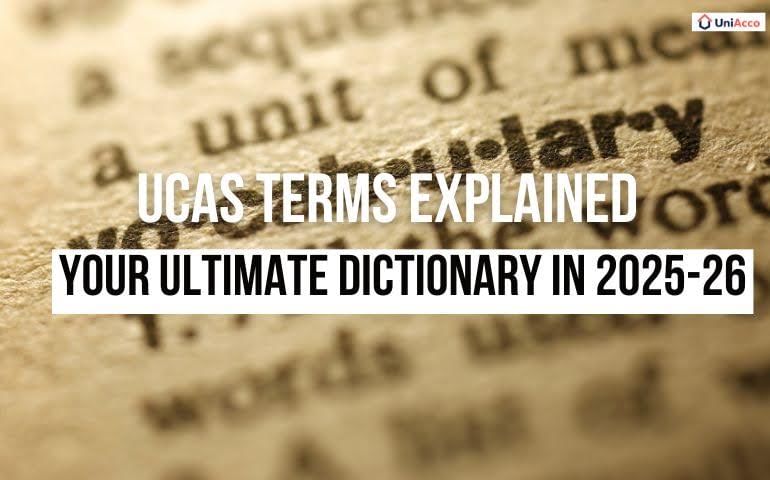Designated as a UNESCO City of Literature and ranked 32nd in the QS Best Student Cities 2025 list, Dublin has a personality few academic hubs can match. It’s a place where literary icons share space with global tech giants, and where historic streets buzz with student energy from every corner of the world. If you’re planning to study in Dublin, you’re stepping into a city that mixes creativity, opportunity, and culture with an ease that feels almost effortless.
However, while Dublin delivers an exceptional student experience, its living costs sit on the higher end of Europe’s study destinations. This blog breaks down all key expenses, from tuition fees and accommodation to food, transport, and entertainment, so you can shape a realistic budget before your 2026 journey begins.
Get a complete breakdown of living costs in Dublin and prepare your finances smartly before starting your academic journey.
🧮 Calculate Your Monthly Expenses NowAverage Dublin Living Expenses for Students: An Overview

The living expenses in Dublin for students typically range from €1,264 to € 2,077 per month, excluding tuition fees. Student accommodation in Dublin remains the largest expense, followed by groceries, transportation, and day-to-day essentials.
Despite being one of Ireland’s pricier cities, Dublin offers strong academic networks, excellent career prospects, and a fast-paced urban environment that many students find worthwhile.
Here’s a quick overview of the typical monthly expenses you can expect:
| Category | Estimated monthly cost (EUR) |
| University halls (on-campus, bills included) | €600–€1,500 |
| Shared housing (off-campus) | €600–€1,200 |
| Private studio / one-bed apartment | €1,200–€2,000 |
| Groceries / Food shopping | €350–€550 |
| Dining out | €200–€350 |
| Local transport (bus, etc.) | €50–€110 |
| Mobile plan & Internet | €67–€70 |
| Clothes & Personal care | €100–€200 |
| Entertainment & Leisure | €80–€200 |
If you want a clearer picture of how these numbers play out in daily life, this Reddit discussion offers first-hand perspectives from students managing their monthly budgets in Dublin:
Is 1000 euro a month, after rent, enough for a student in Dublin? – r/Dublin from r/Dublin
Breakdown of The Dublin Living Expenses
Cost of Student Accommodation
Dublin offers a wide range of student accommodation options, from university-run residences to private studios, each catering to different budgets and lifestyles.
| Accommodation Type | Room Type & Amenities | Average Weekly Cost | Average Monthly Cost |
| University Halls | Single room; shared or ensuite options; utilities + Wi-Fi included; access to common rooms, laundry, security | €140–€340/week | €600–€1,500/month |
| PBSA (Purpose-Built Student Accommodation) | Ensuite or studio; all-inclusive bills ( utilities, Wi-Fi ); gym, study rooms, social spaces, 24/7 security | €275–€450+/week | €1,100–€1,800+/month |
| Shared Apartment | Private bedroom; shared kitchen/living areas; utilities shared among flatmates | €160–€230/week | €600–€1,200/month |
| Private Apartment / Studio | Complete privacy; furnished/unfurnished options; utilities paid separately; suited for independent living | €280–€420+/week | €1,200–€2,000+/month |
University Halls of Residence
University halls are a popular choice for first-year students who want to experience community living and easily settle into life in Ireland. Dublin’s major universities, such as Trinity College Dublin, University College Dublin (UCD), Dublin City University (DCU), and TU Dublin, offer modern and well-managed housing options that help students control the cost of living in Dublin for students during their first year.
Average University Hall Prices:
- Trinity Hall (Trinity College Dublin): €700–€900 per month
- University College Dublin (UCD) Residences: €650–€1,700 per month
- Dublin City University (DCU) Student Residences: €730–€860 per month
- Technological University Dublin Accommodation (various campuses): €559–€1,372 per month
Most university halls offer utilities, Wi-Fi, security, and access to communal facilities, making them convenient and hassle-free for international students starting their journey abroad.
Purpose-Built Student Accommodation (PBSA)
Purpose-Built Student Accommodation (PBSAs) in Dublin offers modern living spaces designed specifically for students. These buildings are often located near major universities, entertainment hubs, and transport links, combining comfort with convenience.
Average Rent:
PBSA rent in Dublin typically ranges between €1,100 and €1,800 per month, depending on room type (shared, ensuite, or studio) and included amenities.
Key Features:
- All-inclusive rent (utilities, Wi-Fi, security)
- Modern facilities such as gyms, study rooms, and social lounges
- Regular student events and community activities
- 24/7 on-site support
- Prime locations close to university campuses
Although PBSA is on the higher end of the price range, the convenience and quality make it a popular choice among international students.
Shared Apartments
Shared apartments offer a balance between independence and affordability. Students typically rent a private bedroom while sharing the kitchen, living room, and bathrooms with flatmates. This option is social, cost-effective, and widely available across Dublin.
Average Rent:
Shared accommodation in Dublin generally ranges from €600 to €1,200 per month, depending on the area, room type, and size of the property.
Key Features:
- Lower costs compared to studios or PBSAs
- Shared utility bills (usually €30–€60 per month)
- Opportunity to meet new people and build friendships
- Flexible rental options
- Popular neighbourhoods: Rathmines, Drumcondra, Phibsborough, Harold’s Cross, and City Centre (higher rent)
Shared apartments are ideal for students who want affordability without sacrificing comfort or accessibility.
Private Apartments
Private apartments and studio flats are perfect for students seeking privacy, independence, and a peaceful environment, often preferred by postgraduates or those working part-time alongside studies.
Average Rent:
Private apartments in Dublin typically cost €1,200 to €2,000+ per month, depending on location, furnishing, and amenities. Central areas, such as Dublin 1, 2, or 8, are more expensive, while outer suburbs offer more budget-friendly options.
Key Features:
- Complete personal space
- Quiet environment suitable for focused study
- Choice of furnished or unfurnished units
- Additional utility costs (electricity, heating, Wi-Fi) of €70–€120 per month
- Ideal for long-term stays or students valuing independence
Cost Variations by Location
The cost of living in Dublin for students varies heavily depending on the neighbourhood. Staying slightly outside the city centre, such as in Tallaght, Clondalkin, or Santry, can greatly reduce rent, but students should consider commuting costs and travel time. Central and southside neighbourhoods tend to be more expensive but offer greater convenience and proximity to major campuses.
| Location | Average Rent (Per Week) | Highlights |
| City Centre (D1, D2, D8) | €400–€625 | Close to major universities, nightlife, transport hubs; highest demand and premium pricing. |
| Rathmines / Ranelagh | €270–€470 | Popular student areas: vibrant neighbourhoods with cafes, shops, and quick access to city centre. |
| Phibsborough / Drumcondra | €350–€575 | Well-connected by bus and Luas; affordable shared housing; popular among DCU & TUD students. |
| Santry / Glasnevin | €340–€570 | More budget-friendly, close to DCU, quieter residential areas. |
| Tallaght / Clondalkin | €300–€500 | More affordable options; longer commutes; suited for students prioritising lower rent. |
| Dundrum / Stillorgan | €230–€400 | Good for UCD students; excellent transport links and shopping centres. |
Secure a modern, budget-friendly accommodation close to campus. Compare verified rooms, studios, and shared flats—fully furnished and student-ready.
🔎 Explore UniAcco Dublin PropertiesCost of Studying in Dublin
Dublin is home to some of Ireland’s most prestigious universities, including Trinity College Dublin, University College Dublin (UCD), Dublin City University (DCU), and Technological University Dublin (TU Dublin). Known for their strong academic reputation, world-class research output, and vibrant international communities, these institutions attract students from across the globe.
Also read: Top Universities In Dublin: Best Colleges & Universities In Dublin
For international students, undergraduate tuition fees typically range from €12,000 to €30,000 per year, depending on the program; arts and humanities being on the lower end, while business, engineering, and science programs fall in the mid-range, and specialised courses like medicine are priced higher.
Postgraduate programs usually cost between €13,000 and €35,000 per year, with research-based degrees and professional programs varying widely in fees.
| Program Level | Discipline / Field of Study | Estimated Annual Tuition Fee |
| Undergraduate (UG) | Arts, Humanities & Social Sciences | €12,000 – €20,000 |
| Business, Management & Commerce | €14,000 – €25,000 | |
| Engineering, Science & Technology | €15,000 – €26,000 | |
| Medicine, Health & Clinical Programs | €25,000 – €55,000 | |
| Postgraduate (PG) | Arts, Humanities & Social Sciences | €14,000 – €22,000 |
| Business, Data, Finance & MBA Programs | €18,000 – €35,000 | |
| Engineering, Science & Computing | €16,000 – €30,000 | |
| Health Sciences & Medical Courses | €25,000 – €45,000 | |
| Research Degrees (MRes / MPhil) | Research-based programs across disciplines | €14,000 – €28,000 |
| Doctoral (PhD) | STEM Fields, Business, Arts, Social Sciences | €12,000 – €25,000 (varies by research area; funding often available) |
In addition to tuition, students should budget for expenses related to books, lab materials, society/club memberships, and student services. Many universities also offer scholarships, fee waivers, and merit-based funding opportunities for international students, helping reduce the financial burden.
Overall, while the cost of studying in Dublin can be higher than in smaller Irish cities, it remains a top choice for students seeking globally recognised education, strong employment pathways, and a dynamic learning environment in Ireland’s capital.
Also read: Why Study in Dublin? | Top Reasons to study in Dublin
Cost of Food in Dublin
The cost of food is a significant factor in managing the overall cost of living in Dublin for students. Whether you enjoy cooking your own meals or prefer grabbing something on the go, understanding average grocery and dining expenses in Dublin will help you plan your weekly budget more effectively.
On average, grocery expenses in Dublin range between €45–€70 per week, depending on dietary preferences, shopping habits, and whether you buy branded or generic products.
| Item | Average Price | Typical Supermarket Range |
| Milk (1 L) | €1.62 | €1.20 – €2.45 |
| Eggs (12 large) | €3.86 | €2.25 – €5.00 |
| Bread (500 g loaf) | €1.91 | €1.00 – €3.00 |
| Rice (1 kg) | €1.86 | €1.10 – €3.49 |
| Apples (1 kg) | €2.74 | €1.50 – €6.00 |
| Chicken (1 kg, fillets) | €10.20 | €5.00 – €13.00 |
| Potatoes (1 kg) | €1.71 | €0.80 – €3.00 |
| Water (1.5 L bottle) | €1.79 | €0.80 – €3.25 |
Tips to Save on Groceries
Shop smart: Choose budget-friendly supermarkets like Lidl, ALDI, and Tesco, where students can find weekly discounts and value ranges.
Buy in bulk: Essentials like pasta, rice, lentils, oats, frozen vegetables, and canned goods cost less when purchased in larger quantities.
Use loyalty cards: Supermarkets such as Tesco (Clubcard), SuperValu (Real Rewards), and Dunnes Stores Value Club offer member-only savings that add up over time.
Cook at home: Preparing meals in batches for the week can drastically reduce food costs compared to frequent takeaways or dining out.
Split costs: Share grocery shopping and meal prep with roommates to cut weekly expenses and ease the cost of living in Dublin for students, while making student life more social and efficient.
Cost of Dining Out in Dublin
Dublin offers a vibrant food scene with everything from affordable cafés and street-food stalls to stylish restaurants and international cuisines. While dining out tends to be pricier than in smaller Irish cities, students can still enjoy meals outside without breaking their budget by planning wisely. On average, students spend €60–€90 per week on dining out, depending on how often they eat out and the types of places they choose.
A typical low-cost meal at an inexpensive restaurant starts around €14–€18, while a mid-range two-course meal may cost between €25-€35 per person. Popular student areas like Rathmines, Phibsborough, and Camden Street offer plenty of wallet-friendly options, making it easier to manage the overall cost of living in Dublin for students while still enjoying the city’s diverse culinary offerings.
| Meal Type | Average Cost |
| Meal at an inexpensive restaurant | €20 |
| Three-course meal for two at a mid-range restaurant | €95 |
| McMeal or equivalent combo (McDonald’s, etc.) | €11.75 |
| Cappuccino | €4.11 |
| Soft drink (0.33L bottle) | €2.52 |
| Water (0.33L bottle) | €2.06 |
Keeping the Dublin cost of living in mind can help you strike the right balance between home-cooked meals and the occasional treat.
Also read: Top Pubs in Dublin: Raise a Glass in Dublin
Cost of Transportation in Dublin
Transport expenses form an important part of the overall cost of living in Dublin for students. Dublin has a well-connected and student-friendly public transport network, making it easy to move around the city. Buses, trams (Luas), and trains (DART) are the most commonly used modes of transport, and most university campuses are located close to major routes.
| Transport Type | Average Cost |
| One-way local transport ticket | £2 |
| Monthly public transport pass | €92.00 |
| Taxi start (standard tariff) | €4.40 |
| Taxi (per km) | €1.43 / km |
| Petrol (gasoline) (1 litre) | €1.76 |
Cost of Utilities in Dublin
When assessing the overall cost of living in Dublin for students, utilities play an important role, especially for those renting private accommodations. The cost of utilities in Dublin typically ranges between €150–€220 per month, depending on apartment size, seasonal heating needs, and usage habits.
| Utility Type | Average Monthly Cost (€) |
| Electricity, Heating, Cooling, Water, Garbage (for 85m² apartment) | €217.59 |
| Internet (60 Mbps or more, unlimited data) | €48.79 |
| Mobile Phone Plan (Monthly, with Calls and 10GB+ Data) | €21.03 |
Overall, understanding how utilities are billed is key to budgeting effectively and managing your living expenses in Dublin as a student.
Cost of Entertainment and Leisure in Dublin
Entertainment and leisure form an essential part of student life, and understanding the cost of entertainment in Dublin helps you better manage the cost of living in Dublin. The city offers a vibrant cultural scene, featuring theatres, cinemas, live music venues, and parks, to unwind without overspending.
| Activity | Average Cost (€) |
| Fitness club membership (monthly) | €47.13 |
| Cinema ticket (1 seat, international release) | €13.00 |
| Tennis court rent (1 hour) | €19.76 |
| Meal at a mid-range pub/restaurant | €90 for two (approx) |
| Beer (0.5 L domestic draught) | €7.00 |
The cost of leisure in Dublin can vary depending on your lifestyle. However, students can still enjoy an active social life by taking advantage of university discounts, weekday offers, and free public events. Dublin’s universities also provide access to clubs, societies, and campus events that are often low-cost or completely free.
When it comes to fitness, the cost of fitness in Dublin is relatively manageable. Most gyms offer student memberships, and university sports centres provide discounted rates for access to fitness classes, swimming pools, and training facilities. Outdoor activities such as jogging in Phoenix Park or cycling along the coastline are great, budget-friendly ways to stay active.
Also read – List of Best Things to do in Dublin 2025
Why Knowing the Cost of Living in Dublin Matters for Students?
Dublin is one of Europe’s most dynamic student cities, known for its vibrant culture, world-class universities, and thriving social scene. However, it is also one of the more expensive cities in Ireland and Western Europe.
Here’s why being aware of the cost of living in Dublin for students is essential before starting student life here:
- To budget effectively in a high-demand city
Unlike smaller Irish cities, Dublin’s accommodation and daily expenses are significantly higher. Knowing the Dublin cost of living helps you set clear expectations and manage your finances confidently from day one.
- To identify free and low-cost experiences
From engaging in free leisure experiences at Phoenix Park and National Museums to seaside walks in Howth, Dublin offers plenty of activities that don’t cost a cent. Understanding your budget helps you balance paid activities with Dublin’s many free cultural and outdoor attractions.
- To avoid overspending on transport and food
Dublin’s bus, Luas, and DART networks are convenient but can add up quickly without proper planning. Knowing your typical travel and food costs helps you choose the most cost-effective passes, student discounts, and meal strategies.
- To improve accommodation decisions
Dublin’s rental prices vary widely based on area. When you understand the cost of living in Dublin for students, you can make smarter choices, like living slightly outside the city centre for better value.
- To support a balanced social life
Dublin’s cafés, pubs, and student events are full of life, but nights out can be expensive. A well-planned budget ensures you can enjoy the city’s vibrant social scene without sacrificing essentials.
- To prepare you for seasonal variations
Heating and utilities can rise during Ireland’s colder months. Knowing these fluctuations helps you avoid surprises and plan ahead.
In short, being aware of the cost of living in Dublin for students lets you balance study, comfort, and adventure, all while keeping your finances in check in this charming city.
Also read – Insider’s Guide for Student Tips in Ireland: Tips and Tricks
Hacks To Cut Down The Cost of Living in Dublin

With strategic planning and smart lifestyle choices, you can manage the cost of living in Dublin for students effectively while still enjoying everything the city has to offer.
- Live in well-connected but affordable neighbourhoods
Areas like Tallaght, Finglas, Clondalkin, and Santry offer more budget-friendly rent compared to popular central areas like Dublin 1 or Dublin 2. Dublin’s bus, Luas, and DART services make commuting easy and reliable from these suburbs.
- Choose student accommodations with inclusive bills
Many PBSAs in Dublin, especially those in neighbourhoods like Grangegorman, Phibsborough, and Stillorgan, include electricity, Wi-Fi, heating, and water in the rent. This helps avoid unexpected bill spikes during colder months.
- Shop smart at budget supermarkets
Stores like Lidl, ALDI, and Tesco offer better prices than premium chains. Watch out for weekly specials and yellow-tag discounts to stretch your grocery budget.
- Use the TFI Student Leap Card
The Student Leap Card offers discounted fares on Dublin Bus, Luas, DART, and Irish Rail. It’s one of the easiest ways to reduce commuting costs across the city.
- Explore thrift and charity shops around Dublin
Places like Oxfam (George’s Street), Dublin Vintage Factory, and local charity shops across Rathmines and Phibsborough offer affordable clothing, kitchenware, books, and student-friendly finds at a fraction of retail prices.
- Take advantage of free cultural events
Dublin is packed with free experiences, including National Museums, Phoenix Park, Dublin Castle grounds, free walking tours, and events hosted by student societies. These help you enjoy the city without overspending.
- Buy groceries in bulk and cook at home
Bulk-buy items like rice, pasta, and frozen vegetables from stores such as Dunnes Stores or Lidl. Home cooking reduces meal expenses drastically compared to regular dining out.
- Use heating efficiently during colder months
Ireland’s winters can be damp and chilly. Use draft stoppers, keep windows sealed, wear layers, and heat only the rooms you use regularly to save on utilities.
These practical tips will help you reduce living expenses in Dublin for students and make your study-abroad experience both affordable and fulfilling.
For more student-approved hacks from people who’ve lived in Dublin on a tight budget, you can also explore this Quora discussion:
Scholarships & Part-Time Jobs to Cover Living Expenses
Managing the cost of living in Dublin for students becomes much easier when you make use of the many scholarships and part-time work opportunities available across the city. These options not only help reduce the cost of studying in Dublin but also allow students to maintain a comfortable lifestyle while focusing on their academic goals.
Top Scholarships for International Students:
| Scholarship Name | Funding Body / Partner | Coverage & Benefits | Eligibility / Focus |
| Government of Ireland International Education Scholarship | Government of Ireland & HEA | Full tuition waiver + €10,000 stipend for one academic year | Outstanding academic excellence; open to non-EU/EEA students |
| Trinity College Dublin Global Excellence Scholarship | Trinity College Dublin | Partial tuition fee waivers (€2,000–€5,000) | High academic achievement; applicable for UG & PG |
| UCD Global Scholarship | University College Dublin | Partial tuition support based on merit | International UG/PG applicants across selected disciplines |
| DCU International Merit Scholarships | Dublin City University | Tuition discounts for exceptional international students | UG/PG applicants demonstrating strong academic profiles |
| TU Dublin International Scholarships | Technological University Dublin | Partial tuition waivers for new international entrants | Applicable to select UG/PG programmes |
Also read: The Ultimate Guide On Applying For Scholarships
Part-Time Jobs in Dublin:
Ireland allows international students (on Stamp 2 visas) to work up to 20 hours per week during term time and 40 hours per week during holidays, making it easier to manage daily expenses.
Dublin’s thriving hospitality, retail, and service sectors provide numerous flexible part-time opportunities suitable for students.
Popular Student Jobs in Dublin:
| Job Role | Average Pay (per hour) |
| Barista | €10.72 |
| Retail Assistant | €11.68 |
| Customer Service Staff | €12 |
| Research Assistant (University) | €18 |
| Tutor / Academic Support | €20 |
| Hospitality Staff (Waiter/Server) | €12 |
Make your move to Dublin stress-free with verified, fully-furnished student accommodation tailored to your budget and lifestyle.
🏡 Browse Student Homes in DublinConclusion
Dublin has a way of drawing you in, through its bookshops, its ocean winds, its late-night conversations, and its easy sense of belonging. It’s a city where your days stretch between research halls and hidden cafés, where ambition feels natural because the energy around you refuses to stand still.
But thriving here also means planning well. Understanding the cost of living in Dublin for students gives you the clarity to enjoy the city’s rhythm without straining your finances. When you know what to expect, you can focus on your studies, growth, and the experiences that turn Dublin from a destination into a defining chapter of your life.
As you shape your future in Dublin, where you stay becomes part of your story too. UniAcco’s multiple curated student accommodation in Dublin ensures you have a comfortable, reliable base, so your energy goes into your research and experiences, not housing stress.















0 Comments